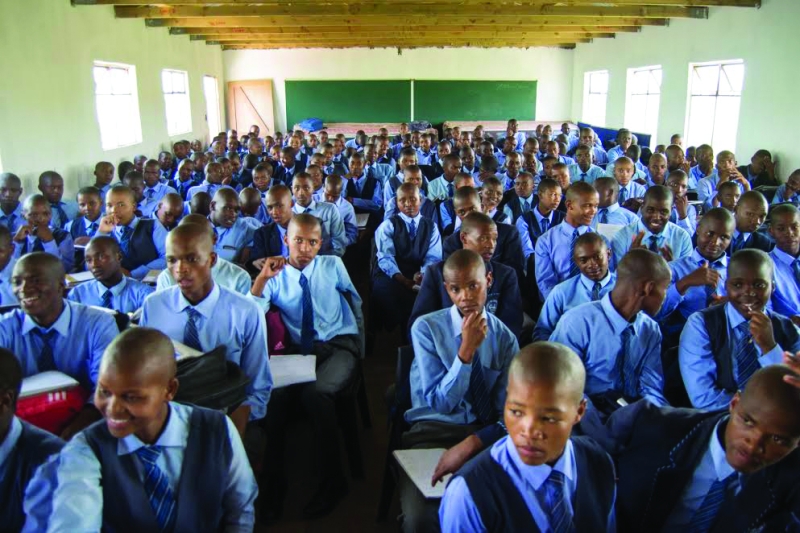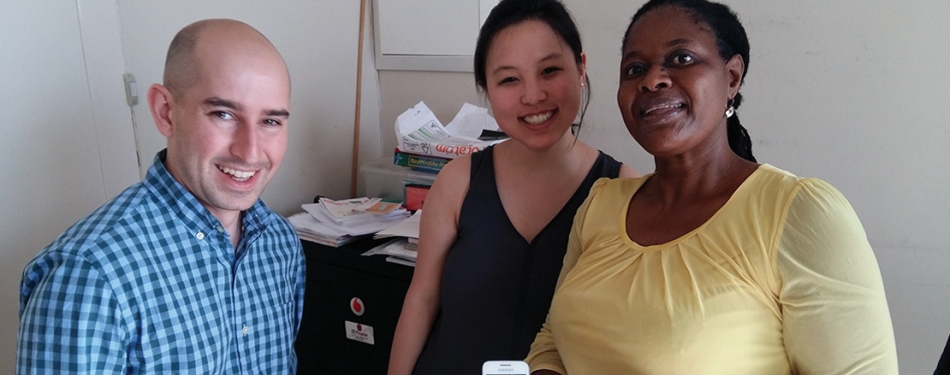I arrived at Michigan Law with a mission to have a broad range of experiences, eventually joining the Pediatric Advocacy Clinic and the Student Rights Project. I also set my sights abroad on a three-month South Africa externship.
I wanted to get outside of my context and yet still be in the legal world, to have more perspective on what does and doesn’t make sense about the U.S. legal system.
I also wanted to continue studying education and child welfare law, so I reached out to the Grahamstown branch of the Legal Resources Centre (LRC). The organization focuses on education litigation, specifically issues involving education access for the rural schools of the Eastern Cape (one of the poorest provinces in South Africa).
I learned that I, this law student, and the words I typed into my computer—in a little house and even smaller library—could actually lead to a kid somewhere having a classroom to learn in.
Shortly before I arrived, the LRC won a ruling that declared the state responsible for providing adequate classrooms and furniture to the schools in and around the city of Mthatha.
In subsequent litigation, the LRC received permission to monitor and implement this judgment, which it did by visiting each school and encouraging them to report their number of students and furniture.
Working as part of the LRC litigation team

My work with the LRC involved traveling to the rural schools near and around Mthatha, most of which recognize that litigation is a big part of progressing education reform. I assisted my managing attorney by having conversations with school administrators about their rights following the recent judgment.
I also listened to the schools’ many concerns—the biggest being overcrowding. I began building upon the legal groundwork laid by the Grahamstown branch of the LRC by drafting an initial demand letter to the provincial Department of Education.
The practice of the law—the actual mechanisms, interpersonal skills, writing skills, and logical skills that you need—are the same even if the exact law is very different. I think I developed a much better sense of that and a better intuition through my experience in South Africa.
My colleagues and I identified the locations that had infrastructure problems and encouraged them to join the LRC’s complaint. We collected information from students, teachers, and administrators and wrote affidavits that were filed with the complaint.
Of the many schools I visited, the one that continues to stand out in my mind is St. Patrick’s Junior Secondary School in Libode, right outside of Mthatha.
Seeing the results of my work
Parents throughout the surrounding areas send their children to be educated there because of its excellence. However, the ever-increasing number of students they received resulted in overcrowding. I remember walking in and the students were sitting with their backpacks on their laps because there was no space.
I worked closely with the school and its principal to fight for the infrastructure they needed. When the effort led to additional classrooms and furniture coming to the school, we had a celebratory phone call.
I learned that I, this law student, and the words I typed into my computer—in a little house and even smaller library—could actually lead to a kid somewhere having a classroom to learn in.
I created change in this one way, and I hope that won’t be my last moment like that in my career.

